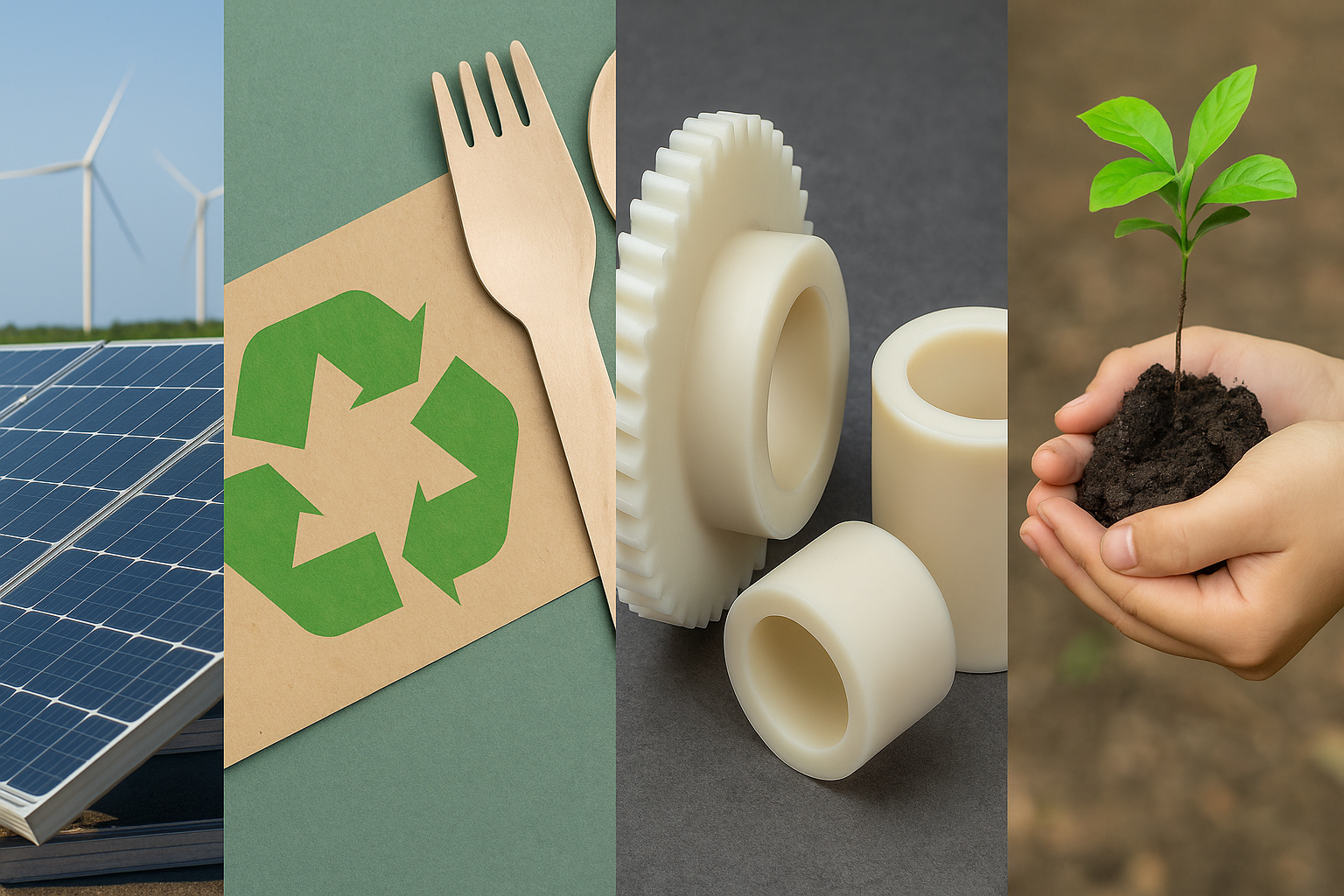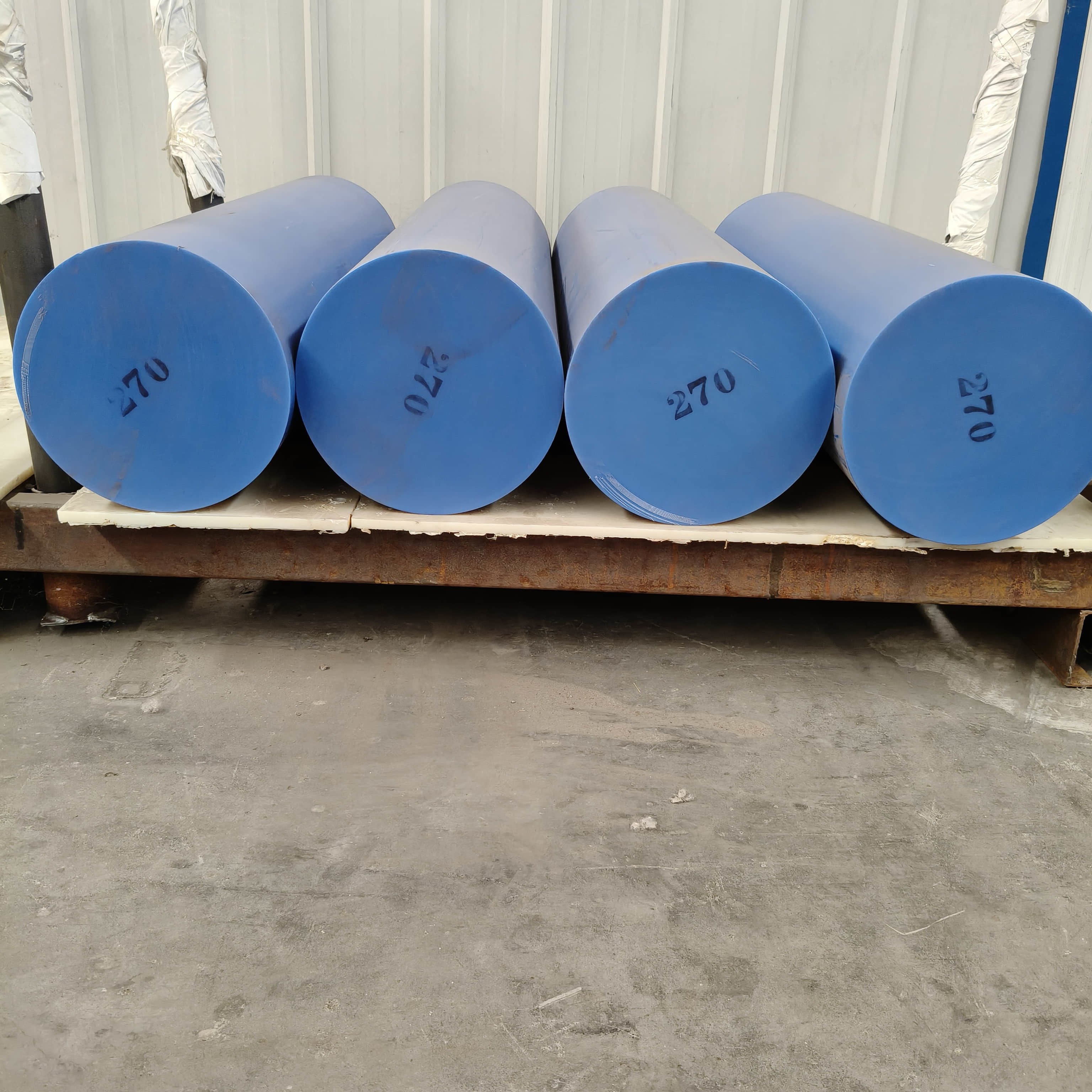Environmentally Friendly Solutions: From Challenges to Practical Materials like MC Nylon
2025-08-29

Introduction
Sustainability is no longer a buzzword—it’s a business necessity. Companies face pressure from customers, regulators, and markets to reduce environmental impact. With the right strategies and the right materials, organizations can lower costs, improve efficiency, and extend product lifecycles.
What Businesses Are Up Against
High energy consumption from fossil-fuel dependence
Industrial waste accumulation, leading to landfill burden and pollution
Material constraints, where metals and conventional plastics carry heavy carbon footprints
Upfront cost pressure when launching green initiatives
Recognizing these barriers is the first step toward practical, results-oriented solutions.
Practical Solutions
1) Renewable Energy
Adopting solar, wind, and hydro is a proven path to cut emissions. Many facilities that integrate on-site renewables report double-digit reductions in carbon output and grid reliance.
2) Material Substitution
Replacing heavy or resource-intensive materials with greener alternatives can deliver fast wins.
MC Nylon (Monomer Casting Nylon) — a green engineering plastic that balances strength, durability, and recyclability.
Applications: automotive gears, EV components, industrial bushings, food-processing conveyor parts
Benefits: lighter than metal, excellent wear resistance, low friction (less lubrication), recyclable at end-of-life
Other sustainable options: recycled metals, biodegradable plastics, bio-based fibers
Waste Management & the Circular Economy
Traditional waste models treat used materials as disposable, sending them to landfills or incineration. The circular economy treats waste as a resource—recovered, repurposed, and reintroduced into production.
Core Strategies
Material Recovery & Reuse
Collect and process scrap metals, plastics, and composites to reduce dependence on virgin resources.
With MC Nylon, worn gears, pulleys, and bushings can be shredded, remelted, and modified to produce new rods, sheets, or components—typically with lower energy use than producing virgin materials.
Design for Longer Life
Selecting durable, low-friction materials (e.g., MC Nylon) reduces replacement cycles. Longer service life = less waste.
Cross-Industry Utilization
End-of-life nylon parts from food-processing equipment can be processed and redirected to automotive or machinery as secondary feedstock.
Closed-Loop Supply Chains
Partner with suppliers to establish take-back systems so MC Nylon products are collected and recycled at end-of-life—closing the produce → use → recover → reproduce loop.
Environmental & Economic Upside
Less landfill and incineration
Lower raw-material spend via reuse
Reduced energy versus making virgin stock
Opportunities to build recycled-material product lines
Illustrative example:
A food-processing plant that switched to MC Nylon conveyor components reported a ~40% reduction in maintenance costs thanks to lower wear. By adding a take-back program for worn parts, the plant generated secondary material for non-critical components—turning waste management into measurable savings. (Always verify food-contact compliance for specific grades and uses.)
Case Snapshots
Patagonia: transparent supply chain and robust product take-back programs
Unilever: aggressive plastic-reduction targets and sustainable sourcing
Industrial adopters of MC Nylon: automotive lines swapping metal gears for MC nylon gears report lower noise, energy use, and waste—plus higher efficiency
Outlook
Environmentally friendly practices are moving from optional to standard. Alongside renewable energy and smarter waste systems, materials innovation—especially green engineering plastics like MC Nylon—will anchor industrial sustainability with lightweight, durable, and recyclable solutions.
Conclusion
Going green isn’t about slogans; it’s about solving real problems. By combining waste management and circular-economy principles with smarter material choices such as MC Nylon, companies can cut costs, boost efficiency, and reduce environmental impact. The future of sustainability is practical, profitable, and within reach.
TAG:
Related News
The Ultimate Guide to MC Nylon Sheets: Specifications, Performance, and Purchasing Advice






